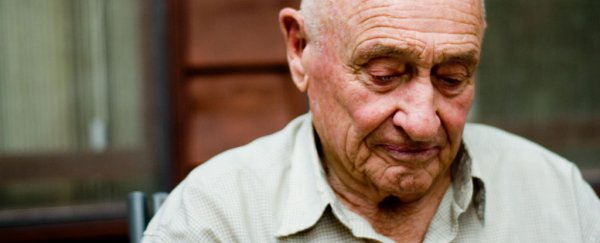A first-of-its-kind study has found that the circadian rhythm of gene activity in the brain changes as we get older, and suggests that a new kind of internal biological clock begins ticking in the minds of elderly people.
Circadian rhythms are deep-rooted mechanisms that control virtually all the processes in the human body, including sleeping and waking, how our metabolism functions, and our cognitive processes.
But circadian rhythms are themselves controlled, being regulated by certain genes that exist in almost all our cells, including our brains, and it turns out that the way these genes are expressed changes depending on how old we are.
The findings will make sense to anybody with older acquaintances or family members, as the daily behaviour and activity patterns of older people are often perceptibly different to those of younger people.
"Studies have reported that older adults tend to perform complex cognitive tasks better in the morning and get worse through the day," said Colleen McClung, a psychiatrist with the University of Pittsburgh. "We know also that the circadian rhythm changes with ageing, leading to awakening earlier in the morning, fewer hours of sleep and less robust body temperature rhythms."
The researchers examined brain samples from 146 deceased people, none of whom had any history of mental health or neurological problems.
The team categorised the brains depending on whether they came from people who were younger than 40 at time of death or older than 60, and used a new statistical technique to analyse tissue samples from the prefrontal cortex.
Looking for signs of rhythmic activity in thousands of genes, they identifyied 235 core genes that constitute the molecular clock in this part of the brain.
"As we expected, younger people had that daily rhythm in all the classic 'clock' genes," said McClung. "But there was a loss of rhythm in many of these genes in older people, which might explain some of the alterations that occur in sleep, cognition and mood in later life."
However, in a surprise to the researchers, the data revealed that not all genes lose rhythm in the elderly. The team found that a certain set of genes actually gain rhythm, and only in older individuals.
"This may represent a compensatory clock that becomes active with the loss of canonical clock function," the researchers write in PNAS.
The researchers intend to investigate whether similar circadian rhythm changes in the brain are evident in lab and animal models – as well as in those with psychiatric or neurological illnesses.
They believe their findings may help lead to treatments for cognitive and sleep problems common in ageing, along with possibly helping individuals with dementia who can become agitated and confused as evening falls.
"Since depression is associated with accelerated molecular ageing, and with disruptions in daily routines, these results also may shed light on molecular changes occurring in adults with depression," said one of the researchers, Etienne Sibille.
